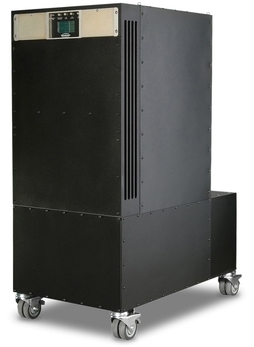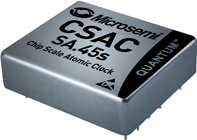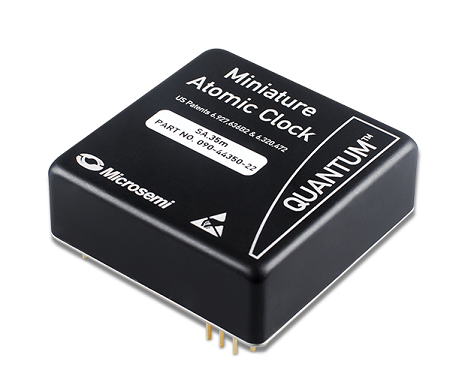Atomic Clock Technology
Overview
What is an Atomic Clock? 
Atomic Clock is a precise clock with an electrical oscillator regulated by the natural vibration frequencies of an atomic system, such as a beam of cesium atoms, ammonia atoms, or rubidium.
Atomic clocks are inherently more accurate than quartz clocks, because their source of oscillation depends on atomic characteristics, while quartz clocks depend on the precision of the manufacturing process used to create the quartz crystal. Quartz clocks also tend to vary more with temperature.
Atomic Clock Types
| Oscillator | Rubidium Gas-Cell | Cesium Beam | Active Hydrogen Maser |
| Holdover | Medium | Very High | High |
| Noise | Medium | Medium | Low |
| Applications | Secondary Standard Quartz Replacement |
Primary Standard | Secondary Standard Low-noise fly-wheel |
| Cost | Low | Medium | High |
| Size | Small | Medium | High |
| Power Consumption | Low | High | High |
Microsemi Leadership in Atomic Clock Technology


On a weighted average basis, Microsemi atomic clocks provide over 90% of the input to Universal Coordinated Time (UTC). Microsemi is the world’s only commercial provider of cesium beam-tube clocks, used in national labs around the world. Microsemi is also the leading provider of gas-cell atomic clocks, including the Chip Scale Atomic Clock (CSAC), the world’s smallest and lowest-power atomic clock, and the Miniature Atomic Clock (MAC).
Ready to learn more? Contact your local Microsemi sales office to find the right clocks and frequency reference products and technologies for your needs.
Resources
Brochures/Datasheets
- High Performance Rubidium Oscillators
- Cesium Atomic Clocks to Backup GNSS_GPS Receivers in Communications Networks



